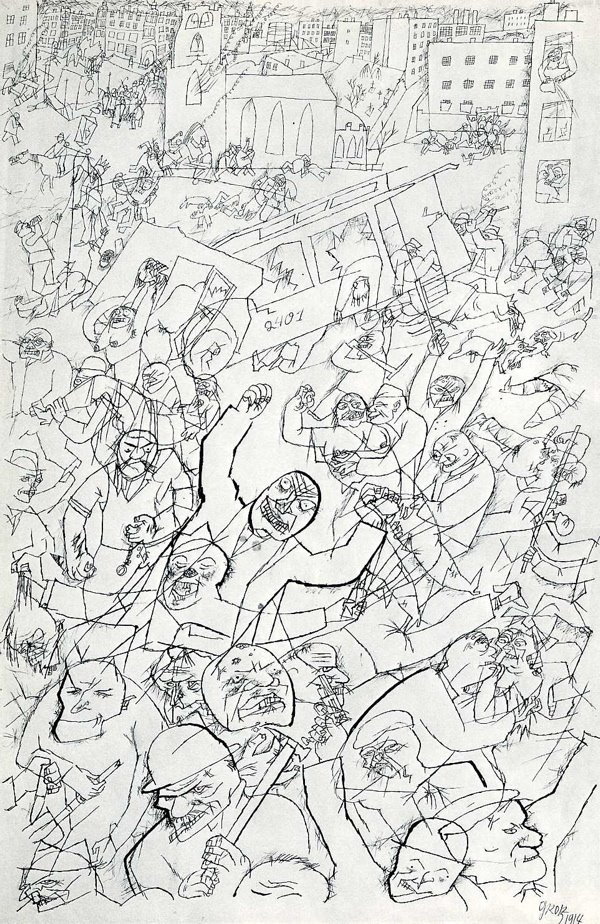Quick thought:
Recently Christopher Hitchens threw a party, where he said an interesting thing:
Hitchens opined on whether the Obama administration should answers calls from the left to prosecute Bush administration officials for illegal interrogation of prisoners [...] Hitchens then claimed that the Bush administration's commitment to harsh interrogation techniques, which he considers torture, derived from a desire among Americans for a more “ruthless” government. “It has to be admitted by every American that in the majority after the 9/11 Commission, people wanted an administration that was much more ruthless than the one they'd had on September the 10th,” he said. “I know something for a sure thing,” Hitchens continued. “The demand for torture and other methods I would describe as illegal, the demand to go outside the Geneva conventions — all this came from below. What everyone wants to say is this came from a small clique around the vice-president. It's not educational. It doesn't enlighten anyone to behave as if that were true. This is our society wanting and demanding harsh measures.”I have to admit that when I read this it struck me as correct. I think that Hitchens is a smart guy, and for as much as I sometimes dislike him, I think he is very good at calling out people for acting righteous when they aren't. After all, isn't the call for prosecution of Bush and Rumsfeld done in bad faith--at least a little? I think many Americans did want something like torture, and I think that members of Congress were perfectly happy to allow the law to be blurred for that reason. In this sense, the call for prosecutions is really done in bad faith; a prosecution of Bush/Rumsfeld is nothing other than our desire to prosecute ourselves for fucking it up--a way for us to feel good by projecting evil onto a finite group of people who is not us. Great.
And even as I say that, I have to think that Hitchens is still wrong. Mandates do come from below, yes, but if we know anything about the psychology of authority--if we've learned anything from the Holocaust, the Stanford Prison experiment or the Migram experiment--it is that the people below will do what they are told to do and to think what they are told to think. So where does blame lay--with the American public or with the leadership?
I suppose this begs the question of what we think leadership is. If we think the job of the leader is to enact those things that the populace wants, then we are guilty. But if we think leadership means the ability to lead, then prosecute away. So what was Bush, then? A terrible non-leader? Or a criminal? Those might be the two options.



2 comments:
"So where does blame lay--with the American public or with the leadership?"
aren't you forgetting the media? not that it was really CNN's fault, but it's this continuous production of depoliticized continuity between the actions of celebrity rulers and the anonymous mass of ruled that supplies its viewers with the necessary assumptions to accept this vague sense of moral complicity.
i mean of course, some americans -- aside from, at the very least, those who participated in the massive antiwar protests -- probably had a more or less murky desire for 'harsh measures' after 9/11, but this is not a mandate for anything specific (not that Bush listened to public opinion anyway). there's a continuum between hate and fear; the idea that one is 'worse' than the other is a media advocacy project.
i think there is zero bad faith in calling for prosecution. moralistic scapegoating isn't the rationale, rule of law is.
also remember hitchens is the one who manfully made a spectacle out of himself and then reported thusly:
"When contrasted to actual torture, waterboarding is more like foreplay. No thumbscrew, no pincers, no electrodes, no rack. Can one say this of those who have been captured by the tormentors and murderers of (say) Daniel Pearl? On this analysis, any call to indict the United States for torture is therefore a lame and diseased attempt to arrive at a moral equivalence between those who defend civilization and those who exploit its freedoms to hollow it out, and ultimately to bring it down. I myself do not trust anybody who does not clearly understand this viewpoint."
i'm sure he's 'smart,' but he's also a strict opportunist and for that reason even more contemptible than if he were just deficient.
i should probably acknowledge that the hitchens quote is from a context of 'presenting the controversy,' but the other side, while given the last word (the last 2 grafs), occupies the position of gestural 'self-doubt,' ensuring the author's humanity despite having been forced to make a 'tough but necessary' decision.
here, i found the article online:
http://www.vanityfair.com/politics/features/2008/08/hitchens200808
Post a Comment